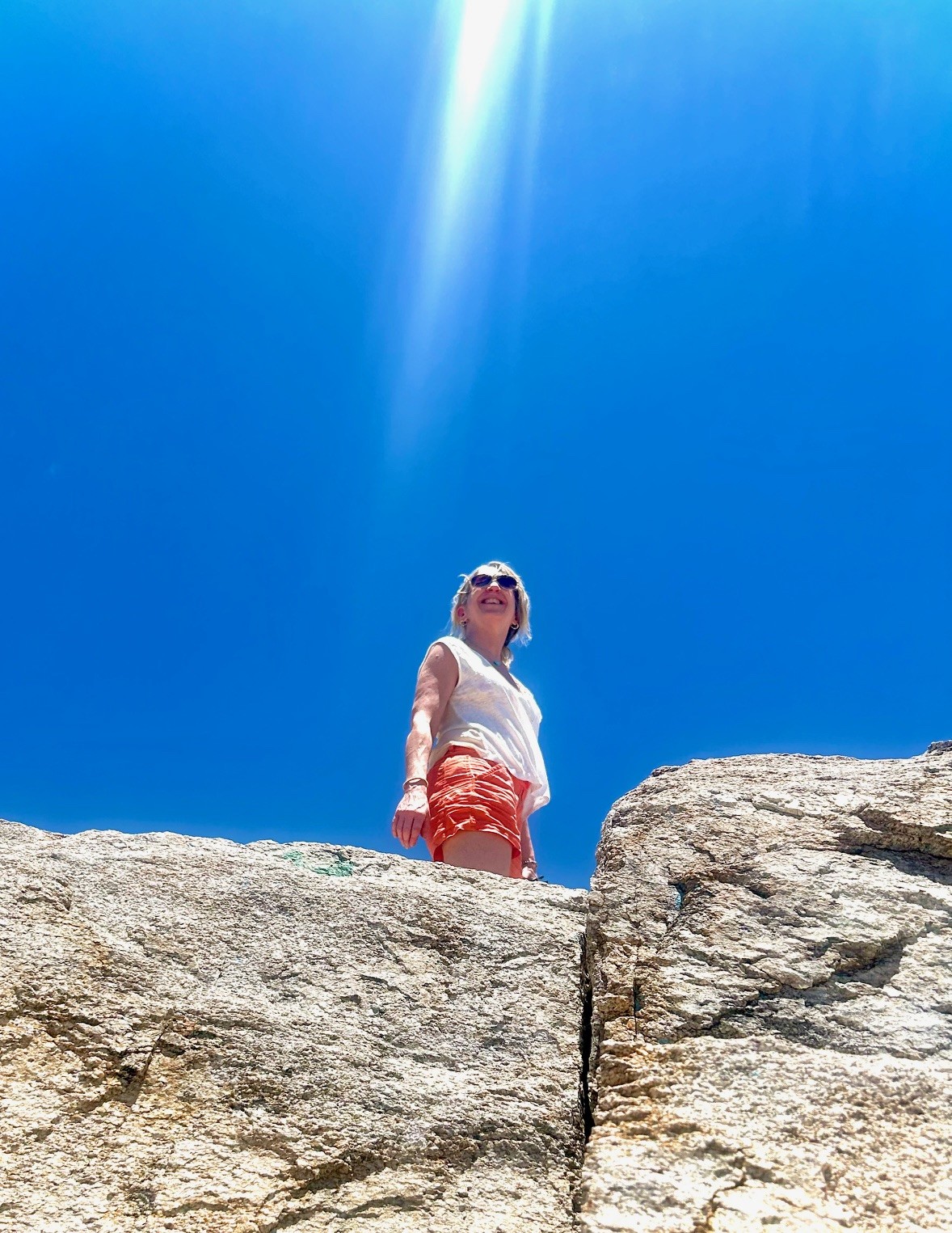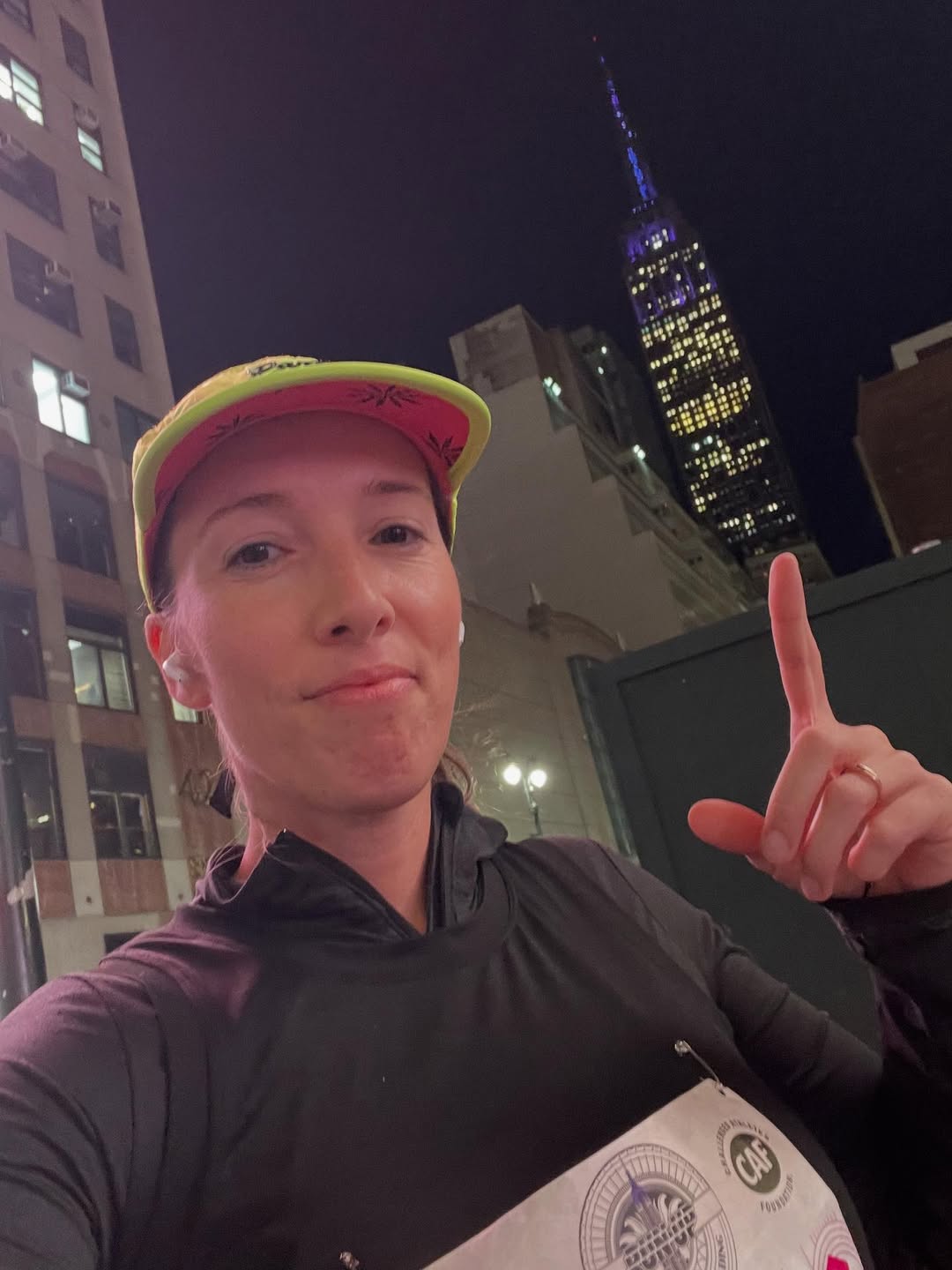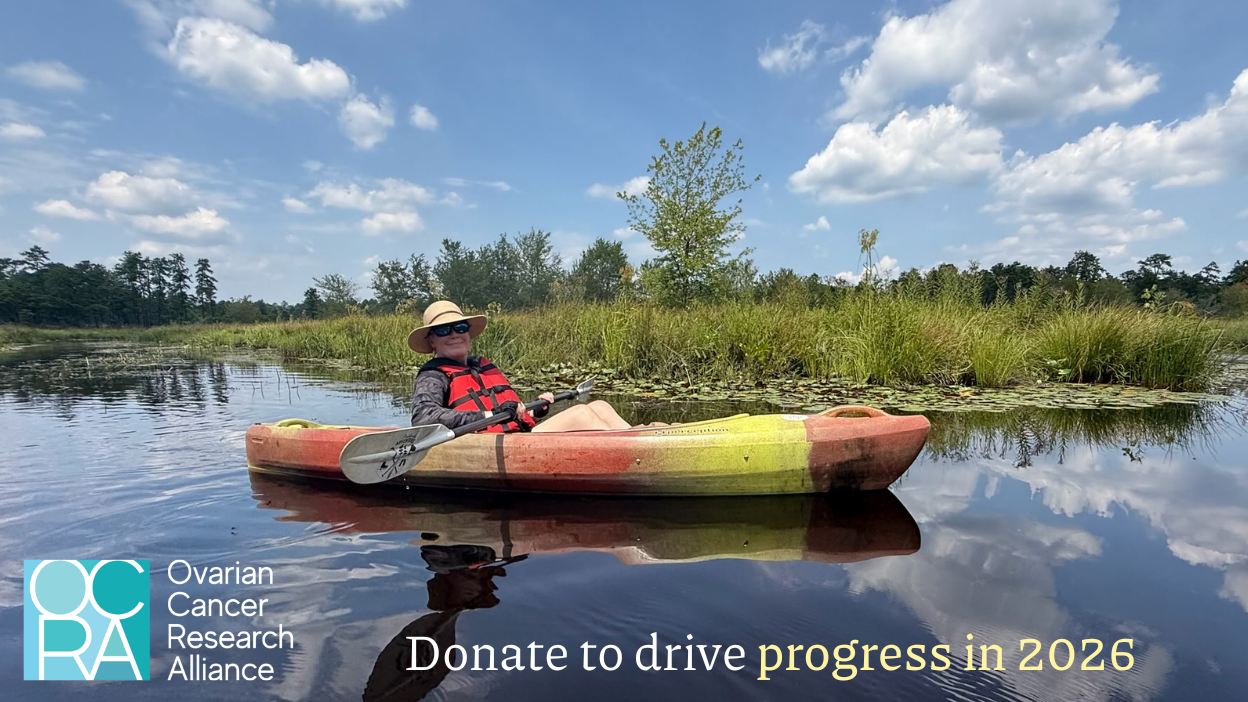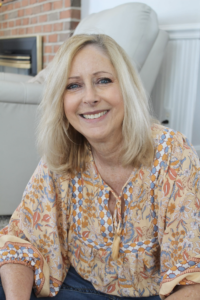
Janice Paulshock first began connecting with others in the ovarian cancer community in 1999 after being diagnosed with Stage 3C high-grade serous carcinoma. Twenty-plus years and four recurrences later, she remains committed to offering support to gynecologic cancer patients through her role as a mentor in OCRA’s Woman to Woman program. Find out how her own diagnosis has shaped her outlook and what her family discovered through genetic testing.
Could you please share a bit about yourself and your family?
I live in Forest Hill, Maryland. Apart from working full-time, I love to exercise and garden. My husband has primary progressive multiple sclerosis, and I participate in a Bike MS ride every year. I also work out in various sports.
I have three adult children in their 30s and five grandchildren. I enjoy every second with all of them. They delight my life! I also have an extended family and friends who I love dearly, too.
When were you diagnosed with ovarian cancer and what has happened since?
I was diagnosed with Stage 3C high-grade serous carcinoma in 1999 at the age of 38. I felt a lump in my groin and was sent for a CT scan and it showed an ovarian mass. Sure enough, it was cancer. I went through five operations and had four recurrences followed by chemo. I went on and off being treated for cancer for nine years. Finally, in 2008, I started taking letrozole and I’ve been in remission since!
Do you have a genetic mutation associated with ovarian cancer?
I am BRCA2 positive. My daughters are also BRCA2 positive, and they will get preventative surgeries.
In addition to prompting genetic testing, how else did your diagnosis impact your family?
My family saw me upset and ill through my 55-plus treatments, but they kept me strong to fight and stay positive. I feel my family has learned to stay healthy and enjoy every second of life!
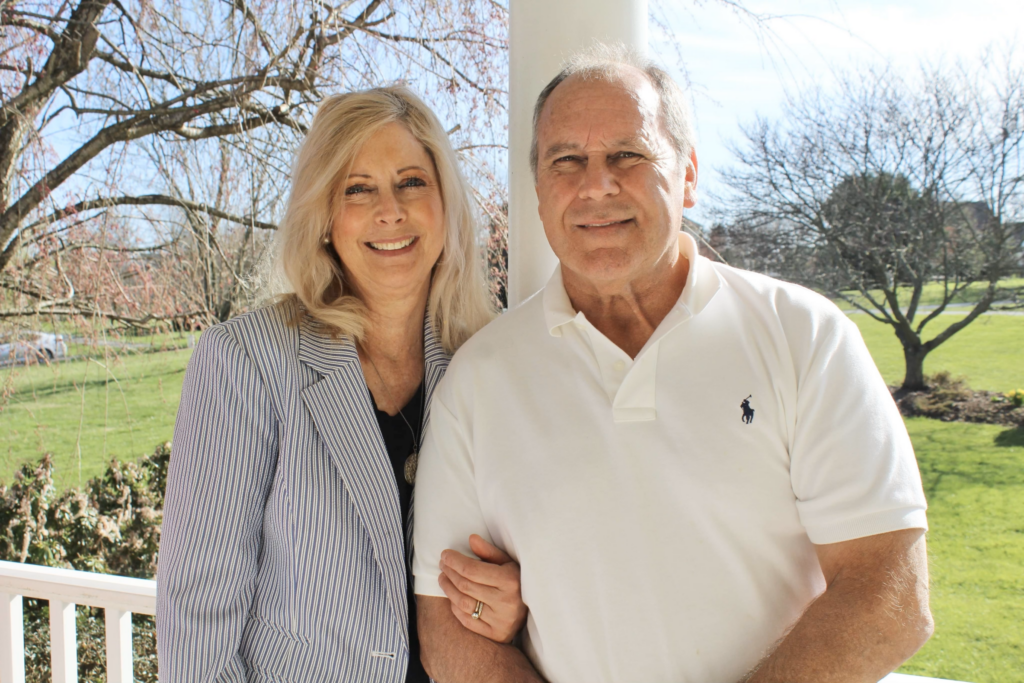
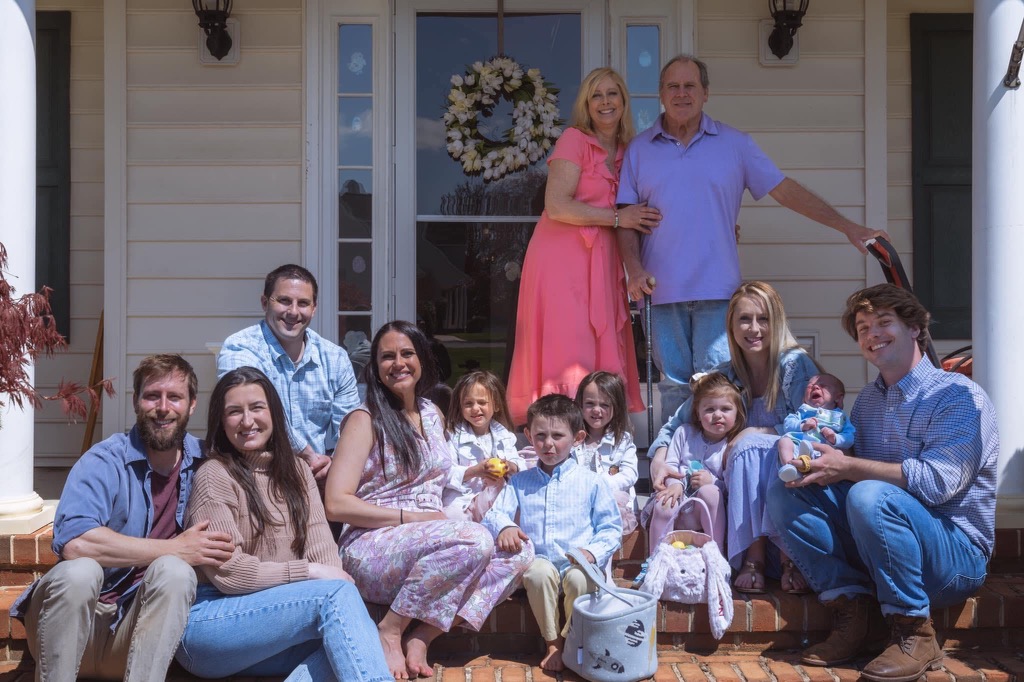
What motivated you to become a Woman to Woman mentor and what has this role been like for you?
I [first] reached out to other ovarian cancer survivors in 1999 … so when the Woman to Woman program was organized, I had to participate! I wanted to help others fight through this deadly cancer.
I’ve been a mentor for seven years. Sometimes my experiences have been heartbreaking. Other times, it has been rewarding to know my mentees are back on their feet. We know [cancer] is scary and we battle it together.
Is there any advice you would like to give to those currently navigating an ovarian cancer diagnosis?
I always tell those diagnosed to listen to their bodies, do not read on the internet, and know that doctors are their answer. Also, make sure to take advantage of offers from family and friends to help with meals, cleaning and errands.
What is your hope for the ovarian cancer community going forward?
My hope for the community is for all hospitals and gynecologic oncologists to stick together and find a cure, as well as better medical treatments and testing for this cancer. I hope we learn from others and teach future medical professionals the symptoms of ovarian cancer.
Anything else you would like to share?
Hope is stronger than fear. Knowledge is power.

